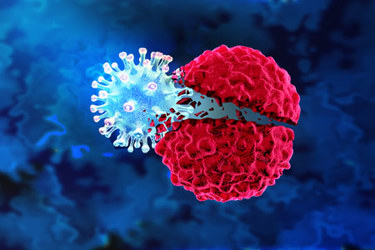Partnering For Success In Oncolytic Virus Development
By Michael Baker, Senior Director, Viral Gene Therapy, FUJIFILM Biotechnologies

Oncolytic viruses (OVs) are an innovative and promising form of cancer therapy that leverages naturally occurring or intentionally engineered viruses to target and destroy a patient's specific cancer cells while also stimulating innate and adaptive immune responses against these cells. This targeted and personalized approach has the potential to revolutionize cancer treatment by offering a more precise and less toxic alternative to traditional therapies like chemotherapy and radiation.
There has been a steady rise in interest surrounding OVs since the first approval by the US Food and Drug Administration of talimogene laherparepvec (T-VEC) in 2015. Numerous recombinant and non-recombinant viral oncolytic therapies are currently in clinical trial evaluation with adenovirus, pox, and herpes viruses emerging as the top candidates for development. The relatively short history of commercial success means no OV production process has reached "platform manufacturing technology" status on par with Chinese Hamster Ovary production systems for monoclonal antibodies.
Access the full article to review how to ensure patient safety, choose between adherent or suspension cell culture platforms, and navigate downstream processing hurdles.
Get unlimited access to:
Enter your credentials below to log in. Not yet a member of Bioprocess Online? Subscribe today.
